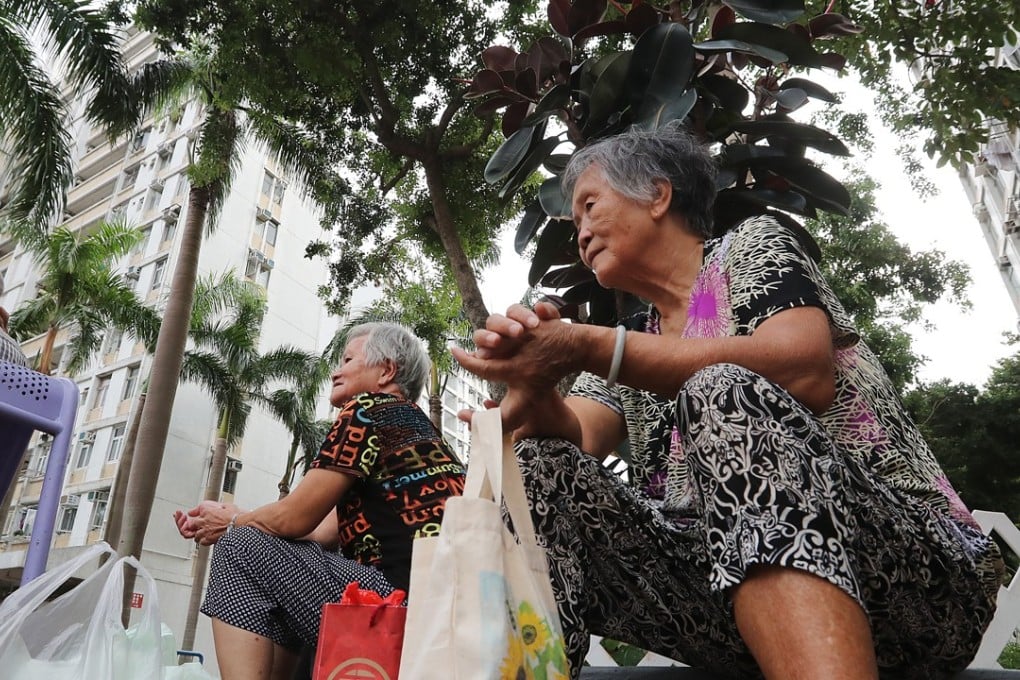Domestic helper subsidy ‘seriously considered’ for low-income elderly singles in Hong Kong
Government may launch a pilot scheme to study feasibility amid overwhelming demand for care services and lack of space for centres

Elderly Hong Kong residents who are living alone in public rental flats could receive subsidies to hire a domestic helper under a plan being “seriously considered” by the government amid a rapidly ageing population, the Post has learned.
Authorities are also studying the feasibility of using land leases to force the city’s developers to include elderly care facilities in their projects.
The possibility of the groundbreaking subsidy plan was revealed by Secretary for Labour and Welfare Dr Law Chi-kwong in a wide-ranging interview with the Post, in which he offered directions to address the problems triggered by the city’s greying population. By 2050, one in seven Hongkongers will be aged 80 or above.
Hong Kong will need 600,000 domestic helpers in next 30 years amid demand for elderly care, labour chief says
Domestic helpers are expected to play a bigger role in elderly care as the land-scarce city struggles to expand the number of community day care centres and nursing homes amid overwhelming demand.
Official statistics show that 9.7 per cent of elderly singles living alone in the city hired a domestic helper last year, a big jump from 5.2 per cent in 2005. In 1995, the figure was 2.5 per cent.
“There have been suggestions that we can actually subsidise people to hire domestic helpers [for elderly care],” Law said. “This is something we will seriously consider but we have made no decision yet.”

Law, formerly a social policy scholar at the University of Hong Kong, said rather than financial difficulties as a barrier for some low-income families to hire domestic helpers, the biggest problem was actually their ability to offer these workers a reasonable form of accommodation. In Hong Kong, this is a legal requirement for employers.
